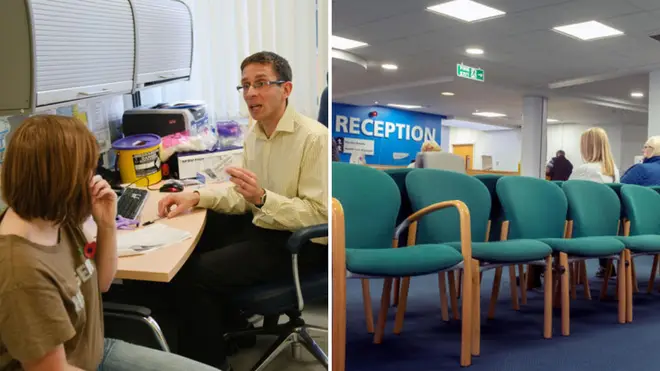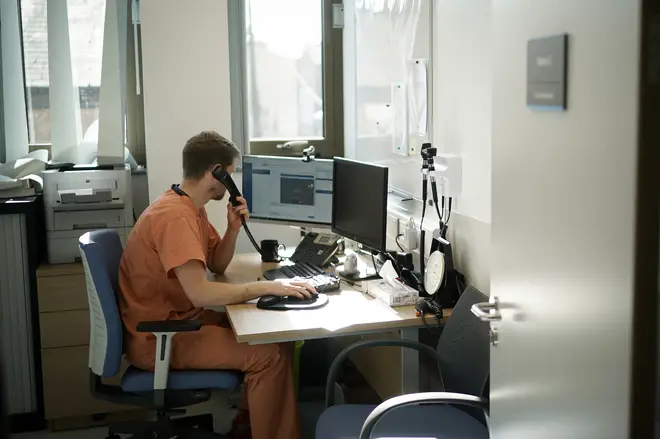
Tom Swarbrick 4pm - 7pm
28 September 2023, 05:26

One in five GP appointments goes to people who simply want someone to talk to, or need advice, a top NHS executive has said.
About 200,000 GP appointments per day are taken up by patients who don't really need them, James Sanderson, NHS England's head of community health, told health leaders.
Mr Sanderson said: "When you look at general practice at least 20 per cent of GP visits are for a non-medical need.
"People are visiting their GP because of loneliness, they are socially isolated or they have issues with debt or relationships or housing.
"Over a million appointments a day in general practice. That's a lot of people facing social issues."
Read more: Major change to GP appointments set to affect millions – how will it impact you?
Read more: The seven illnesses your pharmacist will be able to treat without having to see GP

Meanwhile some people are calling the ambulance 35 times per day, often because of an unresolved social issue, Mail Online reported.
Jonathan Hammond-Williams, head of complex care at South Western Ambulance Service, told the NHS Confederation conference: "Patients are going round what I call the 'washing machine of referrals'. It's about the ambulance service, 111, primary care, community trusts and emergency departments.
"The person is prescribed lots of medications and it doesn't really get to what is essentially the problem, which is often something that is social and personal to them."
Helen Whately, minister for social care, said that A&Es often struggled with "frail, elderly" patients who shouldn't be there.

"I've also got several family members with various health problems at the moment so I've been spending quite a lot of time in hospitals," she said.
"I think one of the things that I've seen through all of that is how hard it is for emergency departments with so many in fact frail, elderly patients who it's not necessarily the right place for them to be."
The minister's comments came as independent research commissioned by the NHS Confederation suggested spending on community care could lead to a drop in accident and emergency footfall and ambulance callouts.
The research stated that for every £100 spent in the NHS community care sector, there is a £131 return on investment in acute sector savings - money that would have been spent providing care to patients in hospitals and across acute services.
The confederation, the membership organisation representing the healthcare system in England, Wales and Northern Ireland, said these savings would be as a result of reduced hospital admissions and fewer people being taken to hospital in an ambulance.

Ali Miraj speaks to listeners as face-to-face GP appointments plummet.
Matthew Taylor, chief executive of the NHS Confederation said: "This analysis shows what we have long suspected - that investing in community services not only helps to reduce hospital admissions and demand on ambulances, but that it also saves the NHS money.
"Successive governments have long held the ambition to shift more care out of hospitals and into the community, but this has never fully materialised. With NHS budgets under huge strain, this analysis shows why it is so important to finally deliver on this long-held ambition. It's not only better for patients to be treated in or closer to their homes, but it's also better for the taxpayer."
He recognised that such a transition in spending "can't happen overnight", but added that "to place the NHS on a more sustainable footing over the long-term, then this is exactly the type of shift in resources that we need to deliver".